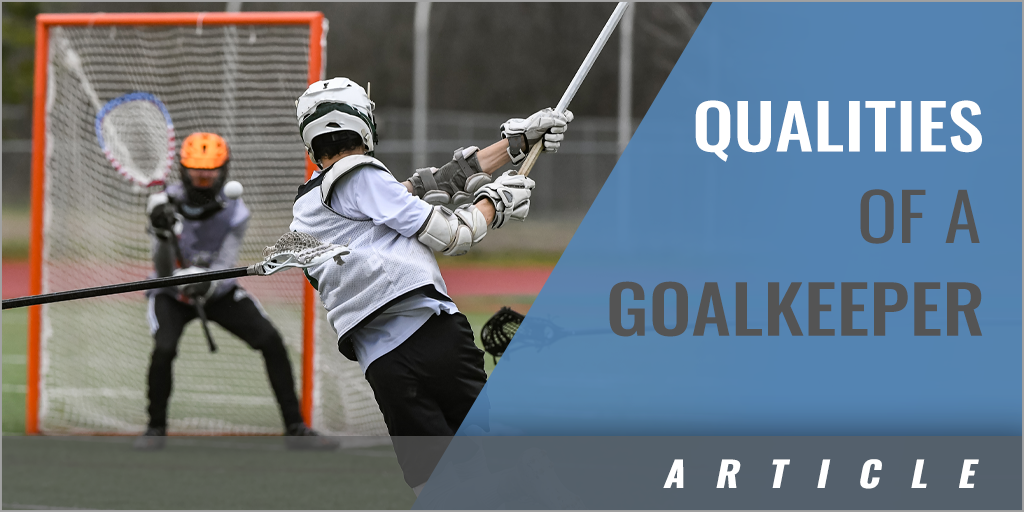|
By: Don Zimmerman and Peter England Originally Published in: Men’s Lacrosse Provided by: Human Kinetics Goalkeepers are made up of a collection of psychological and physical attributes. Psychological traits of an effective goalkeeper include courage, mental toughness, concentration, composure, and persistence. To be a goalkeeper, you must have courage so you can overcome the fear of being hit by a high-velocity shot. You need to understand that playing goalie does involve getting hit with the ball. This "badge of courage" is shared by all goalkeepers. As you learn to make saves and improve your technique, you will be less likely to get hit by a shot. You must be mentally tough so you can cope with difficult situations and emerge without losing confidence. You have to accept the challenges and responsibilities that come with stepping in front of the nets for your team. You must be able to handle the pressures of being the last line of defense. As a goalie, you can go from a hero to a goat in a matter of seconds. You need effective concentration skills that enable you to focus only on the ball through all of the offensive traffic. You must also be able to size up the field with your peripheral vision while concentrating on the ball. You need intelligence and the ability to make smart decisions. Another key trait is composure, which enables you to maintain control over your emotions. For example, if you give up a goal, you need to forget it and move forward. You must have a short memory, and you should not show dejection when scored on. This is not the place for "licking one's wounds" in the heat of battle. You must remain cool, calm, and collected because your teammates rely on you. You need to have persistence. Being persistent and never giving in are crucial because your next save or the final save of the day may be the one that wins the game for your team. Even a not-so-stellar performance may be rewarded with victory. In short, goalies have two levels of performance: ordinary and extraordinary. You want to be a dependable goalkeeper. You need to be good enough to save the shots that you are supposed to stop. You want to be someone who shows up every outing - someone whom your teammates can count on to provide a steady, even performance no matter what the situation. Teams rally around a dependable goalie. In addition, you have to sometimes make the extraordinary save that you're not expected to make. You should look at all saves, even the very difficult ones, as an opportunity. Realize that the tough shots - the ones that appear to be a sure goal - are a chance to make a game-changing play. This type of save may change the momentum of the game and may be a back breaker for your opponent. Excellent goalkeepers have a knack for making tough shots look like routine saves. When a great shot is turned back with a great fundamental save, the shooter's confidence is diminished. Great shooters attempt to will the ball into the goal when they are shooting. Great goalkeepers have an even greater ability to will these shots out of the goal. Goalkeepers must have many of the same physical qualities required of players in other positions; however, quick hands and feet are particularly essential for a goalie. Good vision is important for ball movement and to follow the flight of a shot from the opponent's stick to your stick. You need to have excellent reflexes. Goalkeeper is the position that requires the best reaction skills. General drills such as jumping rope, foot agilities, juggling, and anything that improves eye-hand coordination will be helpful for a goalie. |






